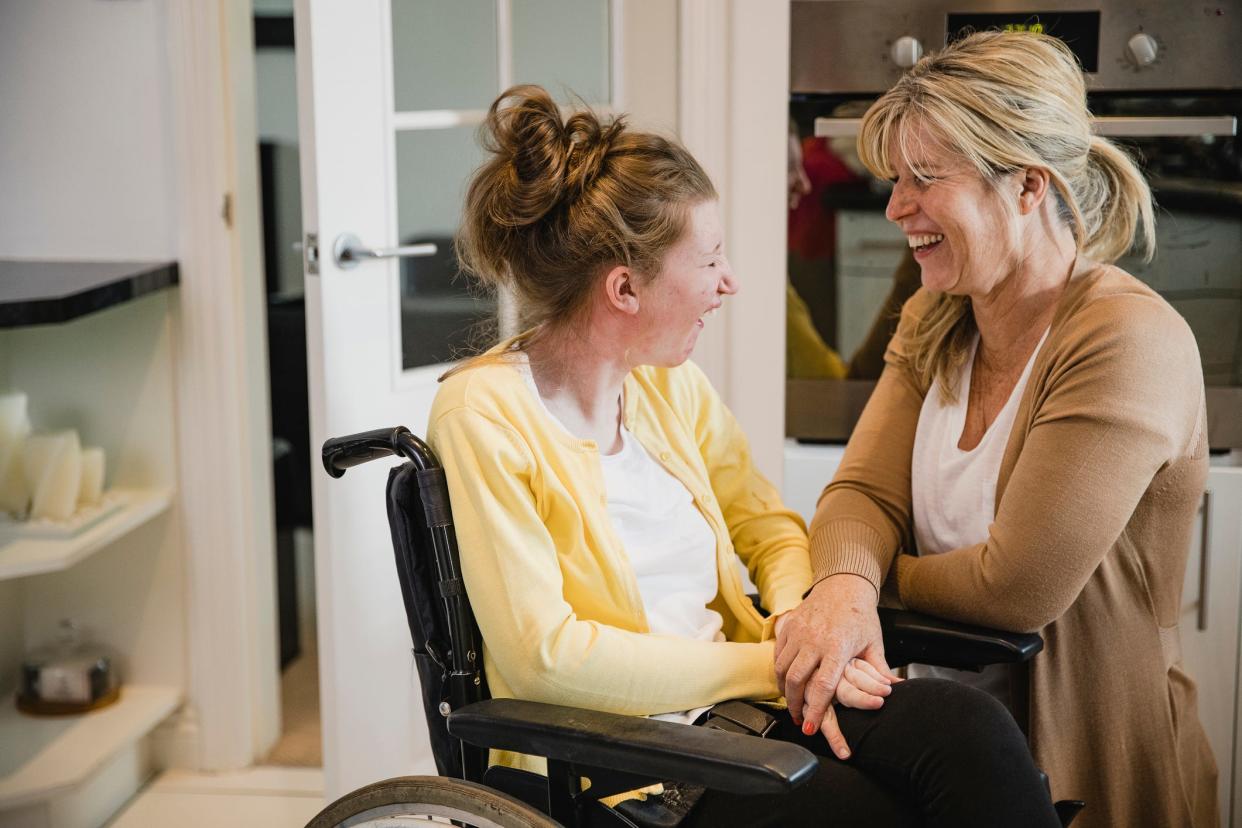Opinion: It is not enough to know what intellectual and developmental disability are.

Kim Hauck is director of the Ohio Department of Developmental Disabilities.
When it comes to developmental disabilities, awareness goes beyond just knowing what intellectual or developmental disability are.
It recognizes the accomplishments and contributions of people with disabilities to our society and highlights the importance of inclusion in our communities, workplaces, and state.

March has been recognized as Developmental Disabilities Awareness Month for the past 36 years.
Opinion: 'We see all of you.' People with disabilities not 'forgotten' through COVID-19
Ohio’s developmental disabilities system supports nearly 100,000 people with developmental disabilities. This includes people, who before age 22, have been diagnosed with autism spectrum disorder, cerebral palsy, down syndrome, epilepsy, or other disabilities. These Ohioans and their families work with their county boards of developmental disabilities to receive services.
Last year, I traveled to all 88 county boards across the state and met with people served and their families, providers, direct care workers, and county board staff. I had the privilege of hearing the stories of how technology has allowed for more independence and how families were able to stay together thanks to multi-system youth initiatives.
I also consistently heard about the struggles due to the workforce shortage in the field. Many of the items shared with me are reflected in Gov. Mike DeWine’s proposed state budget – which is currently being discussed in the Ohio General Assembly.
As a state, we are always working to make sure Ohio is an inclusive and accessible place to work, love, play, and live.
Making our state more inclusive and accessible starts with me and you. Two items in the proposed state budget that were the direct result of advocacy were the addition of universal changing tables in public spaces and the representation of people served on county boards of developmental disabilities. These are both important steps toward a more inclusive Ohio.
How to be more inclusive and supportive of people with disabilities?
Here are a few easy ways:
· Use plain or simple language when communicating. If you are sending a written communication to a group, use active voice, with concise sentences with common words, and avoid jargon and unnecessary information.
Remember that when addressing a person with a disability, they are first a person and second a person with a disability. An example of this is saying, “She has epilepsy” versus “She’s an epileptic.”
Don’t doubt the abilities of someone just because they have a disability. People with disabilities have valuable skills that add to communities, schools, workplaces, families, and more!
Support businesses that employ people with disabilities. From manufacturing companies to coffee shops, Ohio is home to many inclusive employers.
Join me in celebrating the accomplishments and contributions of our friends, neighbors, co-workers, and family members with developmental disabilities not just during March, but every day.
For more information about the Ohio Department of Developmental Disabilities, visit www.dodd.ohio.gov
Kim Hauck is director of the Ohio Department of Developmental Disabilities.
This article originally appeared on The Columbus Dispatch: How to be more inclusive and supportive of people with disabilities?

